In Australia, whether Australian citizens, PR or international students, visitors, as long as they are in Australia, need medical insurance.
The "universal health insurance" system requires visitors on temporary visas to take out private insurance, while PR and citizens can both enjoy free public health care and take out private insurance according to their individual needs.
Since 1980's, Australia has established a comprehensive medical service system, which combines universal health care with private health insurance.
This is a basic health care program covering all residents, and every permanent resident / citizen can apply for an Australian health card, (Medicare Card), cardholders, free of charge, in any community clinic and public hospital in the country to receive a range of free medical services.
However, more than 1/3 of Australians who hold health insurance cards also opt for private insurance in order to get better quality and comprehensive health care.
The following is a comprehensive interpretation of Australia's public health care Medicare and private health insurance. Friends who are unfamiliar or familiar with this should pay close attention to it.

Public health insurance Medicare

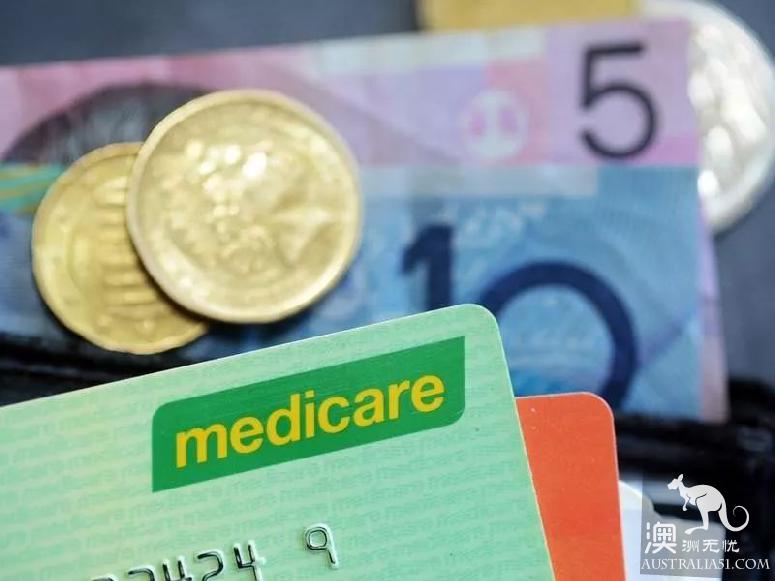
Who can take part in national health insurance?
First, Australian citizens (Australian citizens) and permanent resident (Permanent residents) can take part in Medicare National Health Insurance.
Secondly, some residents who are applying for permanent residence status in Australia or have an Australian work permit may also be eligible to apply for Medicare, which requires consultation with the Australia Medicare for eligibility.
How do I apply?
The address of the Mediacare office in your area can be found on the Medicare website.
When you go to submit your application, you need to fill in the application form (Medicare enrolment application), to provide a passport, a permanent residence visa, personal assets income and other supporting documents.
Once approved, the applicant can obtain an exclusive national health insurance number and a Medicare card.
Medicare Card is valid for a period of five years. When you change your home address or add new members to your family, you should change your new health care card in a timely manner.
The Medicare card is best to carry with you, see a doctor, buy medicine, stay in hospital, and apply for reimbursement of medical expenses.
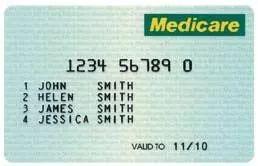
Cost of Medicare
The Australian Government draws a certain percentage of its national income as a medical fund in the form of a tax and is required to pay the National Health Insurance tax (Medicare Levy). If it is eligible to participate in the Medicare or if it has already obtained the (Medicare Levy).
The vast majority of taxpayers need to pay 2% of their taxable income as national health insurance, and low-income people can get deductions.
An individual's taxable income below or equal to $21655 can be exempted from taxes according to fiscal year 2016 / 17, and tax reductions can be made between $21655 and $27068. Families with taxable incomes below $45676 can be exempted from the national health insurance tax (a standard increase of $4195 for every additional minor child in the calculation of income for families with children).
Any person residing in Australia as a temporary resident or unable to take part in national health insurance for some reason may apply for exemption.
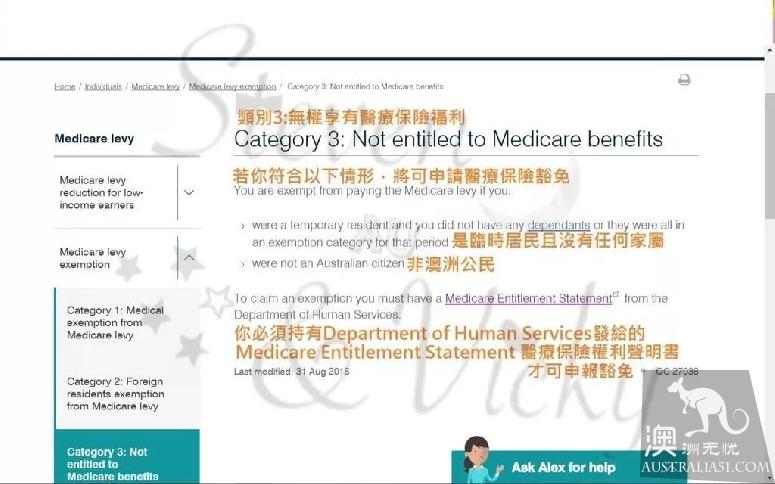
However, for high-income people, in addition to paying the NHS, high-income individuals and families are required to pay an additional national health insurance surcharge (Medicare Levy Surcharge,MLS).
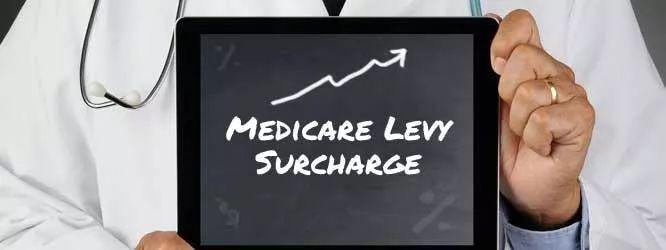
According to income, the amount of additional tax is 1.0% to 1.5% of taxable income. By standard, personal income exceeds $90000, or household income exceeds $180000, subject to a national health insurance surcharge. But if the household income exceeds the standard, but the personal income is less than $21655, the MLS. will not be levied.
(Hospital Cover, who has purchased hospitalization insurance for a private health insurance fund, which is not commonly referred to as' extras', and where the insurance plan meets government standards (individual deductions are less than or equal to $500 and family deductions are less than or equal to $1000), Can no longer pay MLS. This is also Australia's government policy to encourage high-income people to use private health insurance, reducing the burden of Medicare.
What kind of health care does Mediacare provide?
Mediacare's coverage includes: hospital care, out-patient care, medical benefits, and other medical services.
The Australian Government establishes the list of National Health Insurance benefits charges (Medicare Benefits Schedule,MBS), which sets out the Medicare reimbursable medical services program and the reimbursement criteria for each type of medical service. The government regularly updates the medical program and reimbursement criteria on the MBS.
General practitioner clinics can be reimbursed at 100% of the MBS standard and specialist clinics and other medical services at 85% of the MBS standard.
Hospital medical service
You may have access to medical care as a public hospital in Australia, but in this case, the patient does not have the right to choose a doctor and the hospital must assign medical staff to treat the patient. In non-emergency situations, patients may not be able to choose when to be hospitalized or operated on, and their autonomy is low.
But what is certain is that public health insurance makes it all free of charge for patients to board and board in public hospitals, receive treatment, care and continue treatment after discharge. Medicare reimburses 100 percent of the cost of treatment in public hospitals, according to MBS standards.
Patients' self-determination of choice can be greatly enhanced if they are eligible for Medicare insurance and are also covered by private health insurance.
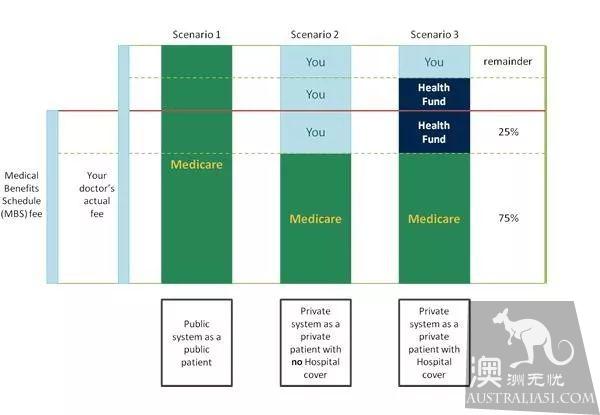
Out-of-hospital medical services
Medicare can reimburse all or part of the cost of medical treatment outside the hospital, such as general / specialist clinics, medical centers, laboratory centres, etc.
Medicare reimbursable services include-
- Fees for general practitioners and specialists. If you want to see a specialist, you need to consult a general practitioner or other specialist. If the referral is not passed, Medicare may not reimburse or only reimburse part of the specialist's medical expenses;
- Medical laboratory examination fee operated by doctor, such as X-ray, pathological examination, etc. Note, however, that the video examination and treatment center registered with the Medicare must be able to reimburse the related medical expenses;
- Ophthalmology examination performed by an ophthalmologist;
- Most of the operations and treatments performed by doctors;
- Partial dental surgery performed by a government-approved dentist;
- And other Medicare approved medical services.
The cost of seeing a doctor at a general practitioner's clinic can be reimbursed according to 100% of the MBS national health insurance standard, while 85% can be reimbursed at a specialist's clinic or other medical service in accordance with the MBS standard.

Drug welfare scheme
The Australian Government, through the Drug Welfare Scheme (Pharmaceutical Benefits Scheme,PBS), provides prescription drug subsidies to patients participating in Medicare. The list of government-subsidized prescription drugs and the self-paid amount of each drug (Co-Payment) are clearly listed in the Co-Payment.
Among them, the amount of self-expense of different drugs is different. According to 2017 standards, the maximum self-payment for each drug is $38.30, and the remaining purchase costs are borne by the government.
When purchasing PBS-approved prescription drugs in pharmacies, show the Medicare insurance card.
Non-PBS subvented drugs are paid by patients at their own expense.
In addition, the Australian government has set up a drug safety net program, (PBS Safety net), to help people control spending on drug purchases without causing economic hardship. The 2017 drug safety net line is $1494.90,90, Once an individual or family's drug spending exceeds this threshold, a discount card (PBS Safety Net Card). Can be obtained from the drugstore. When you buy prescription drugs, you pay no more than $6.30 for each drug. The above two criteria will be adjusted annually.

Medicare non-reimbursable medical services
Medicare provides basic and necessary medical care for Australians, but there are some medical services that are not covered by the Medicare. For example, most dental checkups and treatments are not covered by Medicare reimbursement. Only some urgent, necessary dental procedures are eligible for Medicare grants.
Mediacare can not be reimbursed for receiving non-clinical medical and cosmetic treatment.
Ambulance charges, hearing aids, glasses and contact lenses, prosthetics, physiotherapy, spine massage, home care, etc., are not covered by Medicare insurance.
If you need these medical services and are worried that the costs may outweigh the individual's affordability, you can choose a private health insurance that suits your needs to share the medical costs.

How to reimburse medical expenses?
In general, after a medical card treatment, the bill can be sent directly to the Medicare department by the doctor. It can also be paid by the patient and then reimbursed to the Medicare.
Pay first, then reimburse
There are more than 200 Medicare offices across Australia, with medical receipts and Medicare insurance cards for on-site reimbursement.
In addition, you can also apply for reimbursement via email, telephone or online, but you must send the receipt of the doctor to the corresponding Medicare office.
Many clinics provide Medicare e-reimbursement (Medicare Electronic Claiming) services, clinic staff can directly help patients online, reimbursement costs can be sent directly to the patient account.
Bulk Billing
Medicare's transfer charge system (Bulk Billing) means that when doctors collect medical service fees according to MBS standard, patients do not have to pay for medical treatment after seeing a doctor. Instead, doctors' clinics settle medical expenses directly with Medicare.
If the doctor can transfer the charge, the patient does not have to pay after seeing the doctor, sign the corresponding form can be submitted to the doctor for settlement by the Medicare.
If the doctor charges higher than the Medicare reimbursement rate, the patient will have to pay the medical expenses before applying to the Medicare for reimbursement.
Hospitalization expenses
If you are admitted to a public hospital as a public patient, the hospital will not charge inpatient and medical expenses that fall within the scope of reimbursement as long as you show your Medicare medical card.
Private health insurance Private health insurance

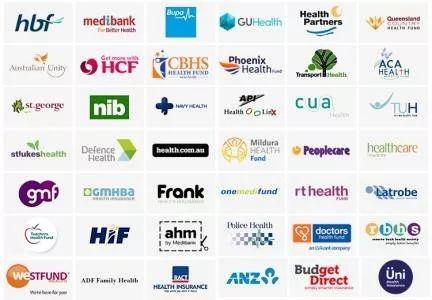
Why choose private health insurance?
Private health insurance can reimburse medical services that are not covered by the Medicare insurance, and also allows patients to choose their own doctors and hospitals as "self-paid" patients in public and private hospitals to obtain better medical care.
When performing surgical treatment in non-emergency situations, public patients often have to wait months or years due to limited public medical resources, Patients with private health insurance usually wait only a few weeks to schedule surgery.
Types of private medical insurance
Private health insurance is usually used as supplementary insurance for Medicare. According to the Australian government, insurance schemes for insured persons who are already eligible for Medicare health insurance cannot provide basic health care services.
Australian private health insurance usually includes two types: hospital insurance (Hospital Cover) and additional insurance (Extras Cover).
Hospital insurance (Hospital Cover)
Hospital Insurance (Hospital Cover) mainly helps to cover all or part of the expenses incurred by the insured during hospitalization, including doctor's service fee, in-patient accommodation, operating room, medicine, and, if necessary, ambulances.
In general, private hospital insurance includes the basic hospital insurance provided by Medicare and increases Medicare non-reimbursable hospital services according to different types of insurance.

